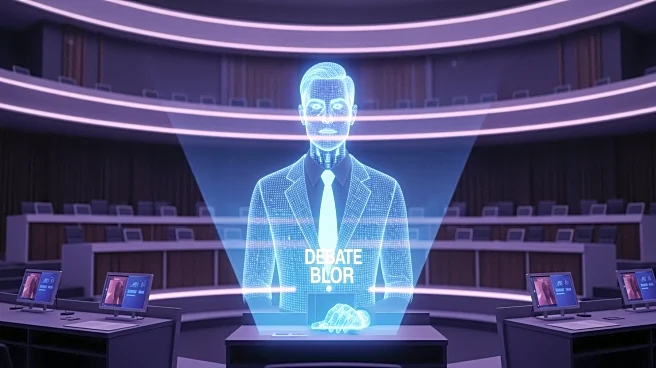What's Happening?
In the Virginia lieutenant governor's race, Republican candidate John Reid held a 40-minute debate using an AI clone of his Democratic opponent, State Sen. Ghazala Hashmi, after she declined to participate
in a live debate. Reid's team trained the AI on Hashmi's previous public statements to simulate her responses on issues such as minimum wage and education policy. The event, dubbed 'The Debate That Should Have Happened,' aimed to provide voters with insights into Reid's positions while mimicking Hashmi's voice and stance on various topics.
Why It's Important?
The use of AI in political debates highlights the growing role of technology in electoral processes and raises questions about authenticity and voter engagement. Reid's approach may influence future campaign strategies, especially in scenarios where candidates refuse traditional debate formats. The incident also underscores the contentious nature of the race, with Reid facing criticism from Hashmi's campaign for using AI as a 'desperate gimmick.' This development could impact voter perceptions and the dynamics of political campaigning in Virginia and beyond.
What's Next?
As the election approaches, both candidates are likely to intensify their efforts to connect with voters. Reid may continue leveraging technology to reach constituents, while Hashmi's campaign might focus on traditional methods to counteract Reid's tactics. The race remains tight, with polls showing Hashmi slightly ahead, suggesting that voter turnout and engagement will be crucial in determining the outcome.
Beyond the Headlines
The use of AI in political debates raises ethical concerns about the authenticity of political discourse and the potential for misinformation. It also prompts discussions on the role of technology in shaping public opinion and the need for regulations to ensure fair and transparent electoral processes.









